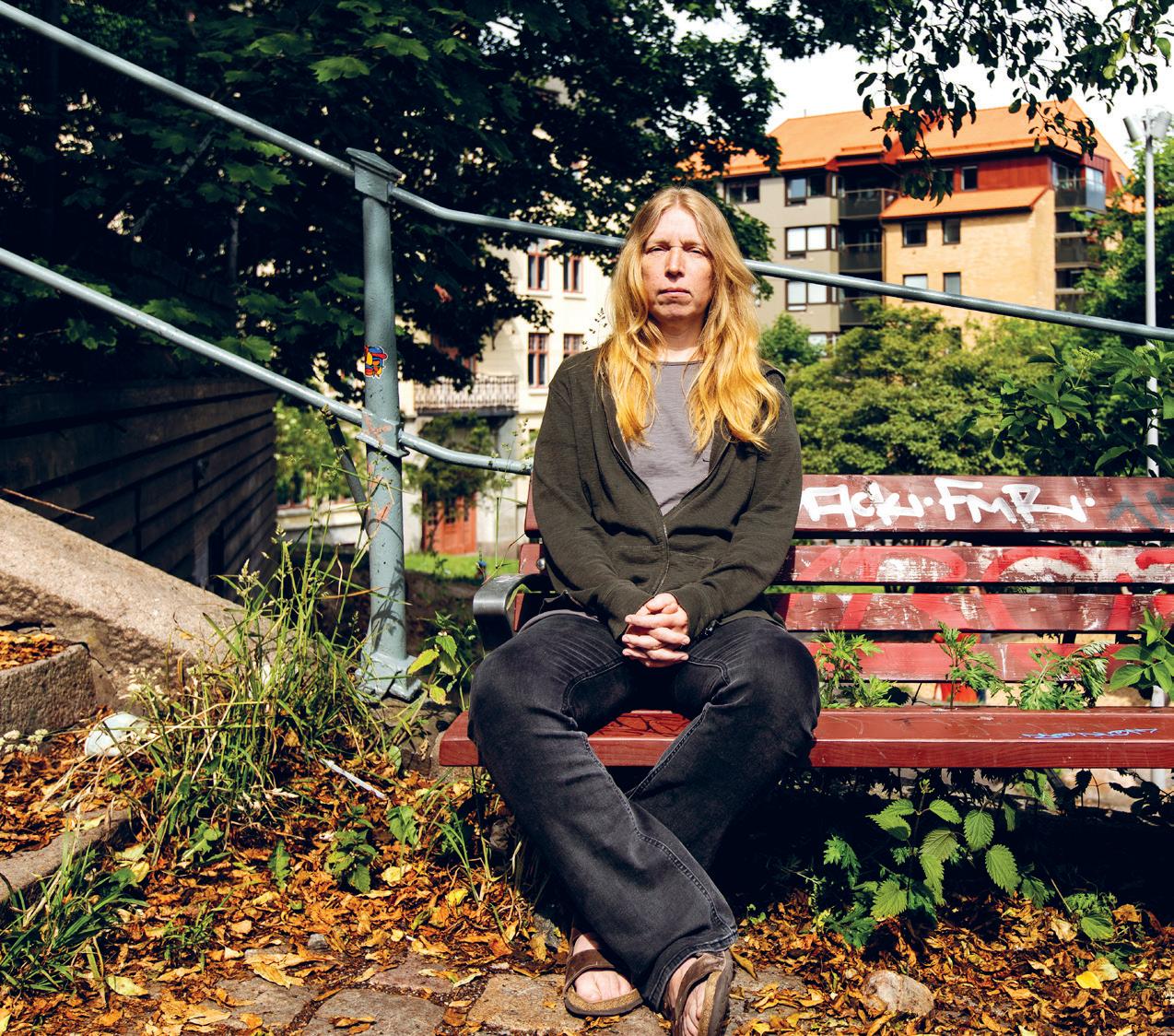
4 minute read
Our longing for an
Celebrating the ordinary
– When I talk to friends in Sweden, Denmark, Spain and Italy, I am struck by how important it has become for so many people to go to the hairdresser. It is not about vanity, but about a need for what is socially familiar, to be able to be among people – and look decent.
Advertisement
This is what Petra Andersson, researcher in practical philosophy, argues.
CAN CRISES, isolation and increased awareness of our mortality make us better people? Petra Andersson is doubtful. – There is an old concept that suffering is ennobling, but I believe it is the other way around, that good experiences lead to good people. And the idea that isolation is good for the soul has also been around for a while. History is full of philosophers, religious people and sages who self-isolated for contemplation – just as people today go on retreats to cultivate their inner world. Instead, generally speaking, the current pandemic has revealed our tremendous need for fellowship. Man is simply a social animal.
THE FACULTY OF HUMANITIES by Näckrosparken, where Petra Andersson works, is usually full of industrious students and colleagues hurrying along corridors. Now, the building is empty and abandoned. – Even though I didn’t run into my own students and colleagues in the corridor, they still gave me the impression that other people are going about things in much the same way as I am, and that we are all in this together – it is a joint effort. The realisation that all of us, not just at the Faculty of Humanities but in society as a whole, are important to one another has become
PETRA ANDERSSON
Philosopher Petra Andersson thinks that people are longing for an ordinary life.

particularly palpable over the past few months.
We miss the ordinary, Petra Andersson argues. – That is why are advised to take a walk every morning, for example, as if we were going to work, and to stick to our usual lunch hours. But that coffee break, which is such a natural thing at the office, does not feel the same at home at the kitchen table. And the feeling of having done your bit when you leave work at five o’clock, will not materialize if you have been sitting on your sofa working all day. All that little bit of feedback from your colleagues, confirming that what you are doing is right, is not forthcoming. Instead we have Zoom meetings, but that is not the same thing as really meeting other people, having eye contact, interjecting with a comment during a conversation or at least contributing with a hum.
But the real problem is the constant reminder to maintain social distancing, Petra Andersson claims. – We do not know how long this pandemic will last. But I believe that all the recommendations to keep your distance, to be afraid of infecting others or getting infected yourself, will affect us in a way that cannot be good in the long term.
Above all, we must protect the old and the vulnerable.
– I HAVE A 93-YEAR-OLD aunt who does not have dementia or any other illness, but is very fragile. Like many old people, she needs to touch the people she is talking to. If the pandemic lasts for perhaps another year, that may correspond approximately to the time she has left to live. Obviously, she is suffering from her social isolation, and I personally believe that she would prefer a few years less to live than not being able to meet her loved ones. Having so many people simultaneously face this type of dilemma, wanting to see their elderly relatives but absolutely not wanting to infect them with a fatal disease, is something that those of us who live in Sweden today have never experienced.
The pandemic has made death more tangible but has also robbed us of the aspect of death that is part of normal life, such as sitting with a loved one who is dying, Petra Andersson points out. – The pandemic has also created a lot of uncertainty. How long will this last? We have known for some time that the University of Gothenburg will maintain remote teaching until at least October 31, and it is good to know that, of course. But we do not know much more than that.
PETRA ANDERSSON does not believe that the pandemic will change our way of life or lead to more climate-friendly choices, at least not in the long term. – But I hope that the pandemic will lead to one positive thing: that we care more for our care providers. That a country like Sweden does not have enough PPE, for example, is completely absurd. I believe there is strong popular support for both higher wages and better working conditions. I think we all realise that healthcare professionals are worth much more than just a round of applause.
Text: Eva Lundgren Photo: Johan Wingborg










